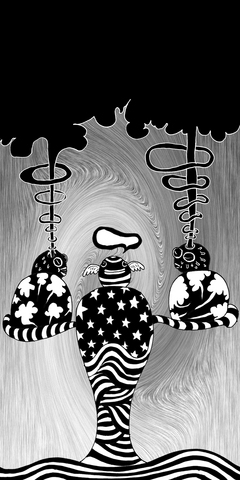President George W. Bush's abilities as an opening batsman may be tested when he visits Pakistan this week. US National Security Adviser Stephen Hadley said that when Bush attends a "cricket event" on Saturday in Islamabad, it is uncertain whether he plans to watch or play. "Who knows what he'll do?"
As Bush steps up to the crease, the official spin on his one-day visit, which follows a trip to India and precedes a stopover in Afghanistan, is that Washington has Pakistan's interests at heart.
The bilateral agenda includes counter-terrorism, the Kashmir dispute with India, and elections promised next year by Pakistani President Pervez Musharraf, who seized power in a 1999 coup.

But Bush, pointing to US help after last October's earthquake, is keen to show the common touch.
"This is a relationship that's much bigger than the `war on terror,'" he told Pakistani television at the weekend. Pakistanis should know "that the American people care about them."
This feeling is not reciprocated in some quarters. Much of the country is in uproar, ostensibly over the Danish cartoons scandal.
Islamist parties, principally the Jamaat-e-Islami (JI), have used the row and visit to stoke opposition to Musharraf and his US alliance, linking it to "anti-Muslim" US actions along the Afghan border and in Iraq and exploiting economic discontent.
Musharraf's hold on power is weaker than at any time since 1999, said Ayaz Amir, a Dawn newspaper columnist. "Since beleaguered governments are prone to clutch at straws, we can expect Islamabad to gloat over the Bush visit. Given the tide of anti-Americanism on which the country is afloat, it is more likely to be a huge embarrassment if not an outright kiss of death."
Graham Usher, writing from Islamabad for The Nation, said the JI linked the Pakistani military's Inter-Services Intelligence Agency to jihadi groups in Afghanistan and Kashmir -- until Musharraf got in the way. He suggested the army could move against him if events spun out of control, as it had against previous leaders.
"The Islamists in Pakistan have never been so powerful," he said.
A government official said that was an exaggeration.
"The Islamist parties have street power but as far as voting power is concerned, Pakistan is a very moderate society," he said.
Musharraf had strengthened grassroots democracy, he said, and the economy was expanding. Next year's elections, including a presidential contest, would go ahead.
But Human Rights Watch said Bush should press Musharraf to stand down, claiming he had weakened mainstream political parties and democratic processes.
"Statements from pro-government politicians appear to be setting the stage for Musharraf's continued rule past 2007," the group said. "The US should not allow Musharraf to exploit his alliance in the `war on terror' to entrench himself further in power."
Bush, a keen Musharraf admirer, is likely to ignore such advice. Although the US says it wants faster progress on restoring democracy, Pakistan's primary importance to Washington remains its key role in helping fight al-Qaeda and the Taliban.
In India, similarly hard-headed calculations will be in play. Bush will seek a strengthened strategic and economic partnership, partly through nuclear cooperation, to help offset the rise of China.
He says he will push for a Kashmir solution. But more pressing in American eyes is the need to stiffen Indian support for apparently contradictory curbs on Iran's nuclear activities. The US is also urging cancelation of a joint gas pipeline project with Tehran.
As in Pakistan, such US aims are highly controversial. To achieve them, Bush will need to show deft footwork amid much hostile bowling.
Concerns that the US might abandon Taiwan are often overstated. While US President Donald Trump’s handling of Ukraine raised unease in Taiwan, it is crucial to recognize that Taiwan is not Ukraine. Under Trump, the US views Ukraine largely as a European problem, whereas the Indo-Pacific region remains its primary geopolitical focus. Taipei holds immense strategic value for Washington and is unlikely to be treated as a bargaining chip in US-China relations. Trump’s vision of “making America great again” would be directly undermined by any move to abandon Taiwan. Despite the rhetoric of “America First,” the Trump administration understands the necessity of

US President Donald Trump’s challenge to domestic American economic-political priorities, and abroad to the global balance of power, are not a threat to the security of Taiwan. Trump’s success can go far to contain the real threat — the Chinese Communist Party’s (CCP) surge to hegemony — while offering expanded defensive opportunities for Taiwan. In a stunning affirmation of the CCP policy of “forceful reunification,” an obscene euphemism for the invasion of Taiwan and the destruction of its democracy, on March 13, 2024, the People’s Liberation Army’s (PLA) used Chinese social media platforms to show the first-time linkage of three new

If you had a vision of the future where China did not dominate the global car industry, you can kiss those dreams goodbye. That is because US President Donald Trump’s promised 25 percent tariff on auto imports takes an ax to the only bits of the emerging electric vehicle (EV) supply chain that are not already dominated by Beijing. The biggest losers when the levies take effect this week would be Japan and South Korea. They account for one-third of the cars imported into the US, and as much as two-thirds of those imported from outside North America. (Mexico and Canada, while
I have heard people equate the government’s stance on resisting forced unification with China or the conditional reinstatement of the military court system with the rise of the Nazis before World War II. The comparison is absurd. There is no meaningful parallel between the government and Nazi Germany, nor does such a mindset exist within the general public in Taiwan. It is important to remember that the German public bore some responsibility for the horrors of the Holocaust. Post-World War II Germany’s transitional justice efforts were rooted in a national reckoning and introspection. Many Jews were sent to concentration camps not